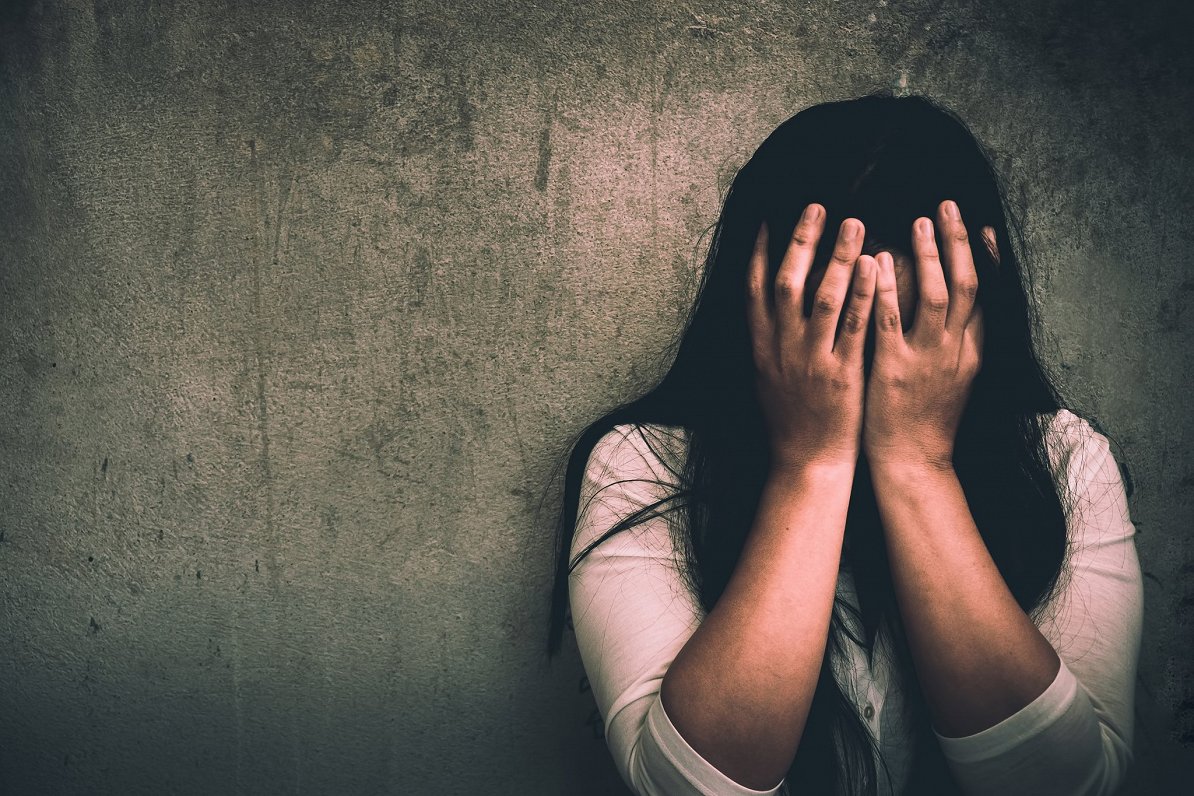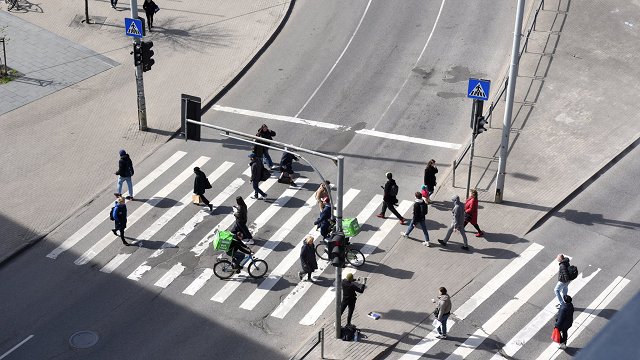The study by EIGE aimed to estimate both direct and indirect violence costs: lost economic output, provision of services, including health, legal, social and specialized; and the personal (physical and emotional) impact on the victim. Violence against women accounts for 79% of these costs – €289 billion each year, EIGE found. The largest costs, around 56%, consist of physical and emotional impact and associated effects. About a fifth is the work of the various services involved in the fight against the effects of violence. 14% of the costs are income foregone in the economy from a person who cannot, for example, work because of violence.
The data are based on population data in each country at the beginning of 2019. Basic expenditure is calculated in Britain and then equated to each EU Member State, taking into account the population of each country.
Situation in Latvia
Latvian Radio wanted to know the Welfare Ministry's (LM) assessment of the current situation and possible improvements in order to reduce violence and thus save money.
However, LM explained that their representative who had helped that study and who had been an expert on gender equality had passed away, so the Ministry does not currently have an appropriate specialist on these issues. But the Ministry's spokesman, Egils Zariņš, said that various problems related to these issues are known to the Ministry, and the Ministry is also actively looking for a new employee who will be able to continue to address violence and gender equality issues.
Meanwhile, some of the costs are also related to the Interior Ministry. Minister Marija Golubeva's advisor strategic communication, Linda Curika, said that it was difficult to give an assessment and vision of the situation without very detailed knowledge of the study, but the Ministry is determined to familiarize itself with these data and to take them into account, judging the necessary actions in the specific field.
Curika said: “We will certainly investigate this study. We will draw attention to how the data on Latvia have been analyzed and what data is available in general, both for this example study from Britain, which is part of this study, and for the EU as a whole. On our part, in the Ministry, we will also look at whether we have adequate data available and, if not, how we can better obtain and collect them. Domestic violence is one of the minister's priorities in the Ministry of Interior.”
The “invisible part” of the cost
Human Rights and Gender Equality Consultant Dace Kavasa has represented Latvia at the European Institute for Gender Equality. Kavasa said that much of the total cost is made up of the so-called “invisible part.” For example, a policeman's remuneration while he's working on a particular case.
The current situation with violence in Latvia is not pleasing. The Covid-19 pandemic contributed to this. Kavasa believes homework should be done by both the state and the public.
“The acceptance and tolerance of violence are still high enough. The fact that we accept, we do not see some concrete actions as violence. We just don't define it as violence. The simplest example is spanking. Many people don't see it as violence. They say, what? I just smacked the bottom. It shows that there is a lot to be worked on – already at an early age,” said Kavasa.
“And the other part that the country can do – preventive work should be done. One direction would certainly be how to integrate health studies, awareness of your body, awareness of your borders. And, on the other hand, to create and maintain these support programs, both for victims and perpetrators. In parallel, working both with awareness-building and with law enforcement authorities and with the building of the system itself, we tell people that we want you to feel safe.”
Iluta Lāce, head of the Women's Resources Center Marta, praised the fact that such a study had been carried out. She pointed out that the results of the study, whose base data were obtained in Britain, are difficult to adapt to Latvia, because there is a wide variety of services that can be received by victims of violence here and in Britain. Lāce believes the study has great value anyway.
“What does this study give us? First of all, it gives us an insight into this problem as it is. Shows that these data are necessary, that we need to collect them, and this issue has also been raised in the working group in the Saeima dedicated to preventing domestic violence; that this data is missing for us, that we need to work to have them. And secondly, it also helps us to think about how to create more effective policies to prevent violence,” she explained.
In addition, the State should cover the cost of services to persons suffering from violence in full. It's not the situation right now.
Lāce said: “So that she [the victim] is not forced to return to these violent relationships for a variety of reasons, because the situation of housing is not addressed, or for any other reason. If we look at the situation of the center “Marta”, in a year, the costs to help victims are around €230 thousand. Of these, we have EUR 33,000 of state resources to address domestic violence. The rest of the resources we need to obtain from other sources for victims of domestic violence. Thank you very much to those who donate, and now also thanks very much to the result of the “Dod pieci” campaign that gives us these resources, but in principle, if we look at one victim, the rehabilitation cost is provided by the State at 37%.”
Although a study dedicated to the costs of violence is very useful, as it shows both the direct and hidden costs of the effects of violence, it is also vital to sort out the system in Latvia to collect various types of data to work with. The most important, however, is public awareness against tolerance of violence.





























